The First U.S. Military Engagement in an Expanded Israeli War Has Begun
Yesterday, the sketchy Pentagon statements about the USS Carney are starting to make sense. The initial suspicions within the originating statements {GO DEEP} are well founded. Today, the Pentagon is admitting the events in the Red Sea were “much more significant” than originally outlined. Here’s the big picture, and we will go a little deeper.
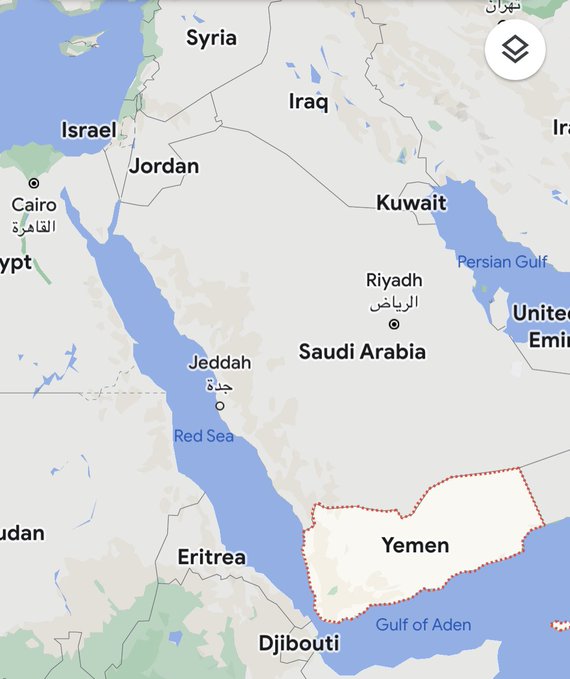 The USS Carney is an Arleigh Burke-class destroyer assigned to USS Ford Carrier Strike Group 12. As part of the October 8th deployment into the eastern Mediterranean, the USS Carney took up a defensive position for the strike group by going through the Suez Canal into the Red Sea. Fortunately, the Carney arrived in the Red Sea, on mission, Wednesday, just hours before four cruise missiles and 15 drones entered the established defensive perimeter airspace.
The USS Carney is an Arleigh Burke-class destroyer assigned to USS Ford Carrier Strike Group 12. As part of the October 8th deployment into the eastern Mediterranean, the USS Carney took up a defensive position for the strike group by going through the Suez Canal into the Red Sea. Fortunately, the Carney arrived in the Red Sea, on mission, Wednesday, just hours before four cruise missiles and 15 drones entered the established defensive perimeter airspace.
The Carney’s interceptions, the defensive activity against the missiles and drones, took place over 9 hours on Wed/Thursday. All of the interceptions happened in commercial airspace, meaning the drones and missiles were targeted to fly at altitudes of commercial air travel. Obviously, the destination of the missiles and drones was/is unknown; however, the Pentagon said “potentially” targeted to hit Israel.
Now keep in mind, this report from CNN (think State Dept) is from a U.S. official that is NOT the Pentagon. Meaning this report is political in nature and slanted to provide the State Dept/political Intelligence Community perspective. Again, this is not a military report; this is a report from the U.S. political angle of government.
CNN — A US warship that intercepted drones and missiles near the coast of Yemen on Thursday encountered a larger and more sustained barrage than was previously known, shooting down 4 cruise missiles and 15 drones over a period of 9 hours, according to a US official familiar with the situation.
The USS Carney, an Arleigh-Burke class destroyer that traversed the Suez Canal heading south on Wednesday, intercepted the missiles and drones as they were heading north along the Red Sea. Their trajectory left little doubt that the projectiles were headed for Israel, the official said, a clearer assessment than the Pentagon’s initial take.
A sustained barrage of drones and missiles targeting Israel from far outside the Gaza conflict is one of a series of worrying signs that the war risks escalating beyond the borders of the coastal enclave.
[…] On Thursday, Pentagon press secretary Brig. Gen. Pat Ryder said the missiles were fired by Iranian-backed Houthi forces in Yemen and were launched “potentially towards targets in Israel.” At the briefing, Ryder said three land-attack cruise missiles and “several” drones.
Some of the projectiles were traveling at altitudes that made them a potential risk to commercial aviation when they were intercepted, the US official said. The drones and missiles were intercepted with SM-2 surface-to-air missiles launched from the USS Carney.
US interceptions of Houthi launches are exceedingly rare, making the timing of this incident, as tensions rise in Israel, more significant. In October 2016, the USS Mason deployed countermeasures to stop an attempted attack in the Red Sea targeting the Navy destroyer and other ships nearby. In response, the US fired sea-launched cruise missiles at Houthi radar facilities in Yemen. (read more)
We have already addressed the originating problems with the Pentagon report. Just the 1,300-mile flight distance alone is problematic when attaching this origination to the Houthis. Since when did this Yemen rebel group gain missiles and drones that could target at such distances? Something doesn’t add up.
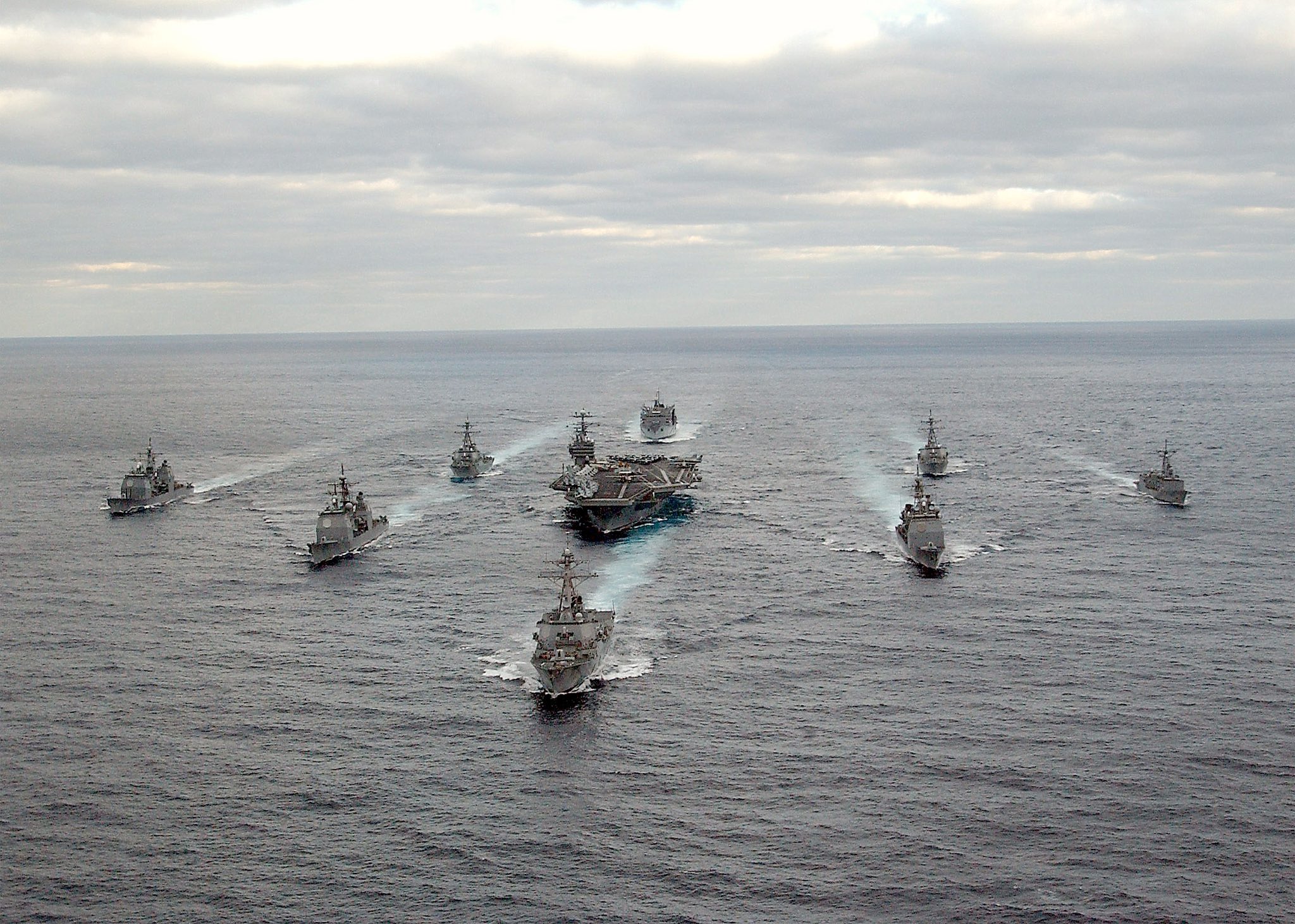 In reality, the original Pentagon statement does make sense. They don’t know where they came from, and they don’t know where they were going. However, they entered a defensive perimeter established by USS Ford, via the battleship Carney, as part of their strike group mission and formation.
In reality, the original Pentagon statement does make sense. They don’t know where they came from, and they don’t know where they were going. However, they entered a defensive perimeter established by USS Ford, via the battleship Carney, as part of their strike group mission and formation.
With the carrier strike group in place, the proximity and overall direction of the unknown missiles and drones was a threat. So, we shot them down. That is the standard mission priority.
The political message to CNN, not from the Pentagon, is to firm up the most likely originating location as Yemen and establish the most likely destination as Israel.
However, there are multiple alternatives, one of which is alarming and would also explain the intense sensitivity of the Pentagon in using the word “potentially”; the truth is, they really don’t know. Factually, USS Carney arrived literally hours before this took place, a very fortuitous arrival on mission all things considered.
We can well imagine if the Carney was still navigating the Suez Canal at the time the missiles and drones flew overhead. We, or whoever was the target of 4 cruise missiles and 15 drones, lucked out.
Which brings us to the part of “potential” destinations. Considering the motives and intents of the hostile and opposition elements globally and regionally, there’s just as solid an argument to make that the USS Carney did exactly what it was supposed to do, defend the USS Ford strike group. Meaning, the target could have been the U.S. fleet and the USS Ford itself.
Then we look at “potential” origination. Again, the Houthi’s may have received a very recent Iranian missile capable of delivering a payload over this distance. They did not have them before, but they could be newly acquired; so, the origination could be Yemen. However, it is worth remembering that China is the #1 investor in Yemen, and has a geopolitical relationship in Yemen driven in part by a very nearby Chinese navy military base in Djibouti.
In 2017, China established its first overseas naval base in the small East African country of Djibouti. The base, where perhaps 2,000 Chinese troops are stationed only a few miles from the U.S. Navy’s own Djiboutian base, Camp Lemonnier, set off alarm bells in Washington about Africa’s role in China’s growing military profile. (link)
China has been selling weapons to Yemen as part of the geopolitical alignment between Iran, Russia and China. China also supports the current status of peace between Yemen and Saudi Arabia, and has been working diligently to keep all of their interests aligned.
Were the advanced missiles part of the relationship between China and Yemen?… Or were they Iranian? The former seems increasingly likely, the latter not quite as much.
So, with the Pentagon admitting they are not certain, and with the State Dept motive to downplay the significance, let’s put the process together.
China would have a solid motive for supporting Yemen in the actual targeting of the USS Ford. What faster way to bring the U.S into yet another engagement than by targeting a U.S. aircraft carrier strike group. For Yemen and the Muslim Brotherhood, this would be medal of honor level success, exceeding any joyful targeting of Israel.
The U.S., in this scenario the great satan, is pulled into yet another protracted Middle East quagmire along with prior commitments to Ukraine. Now, with both a European and Middle East conflict, the beneficiaries would be Iran, Russia, China, the Muslim Brotherhood, Turkey, Syria and the list goes on from there. This diverts all U.S. resources away from the Pacific Theater and leaves Taiwan as easy pickings. Smiling panda.
Guess who else would benefit.
Last point, notice how in this scenario no one’s fingerprints are actually -directly- on any of this. Plausible deniability is everywhere.
Funny how that happens?…

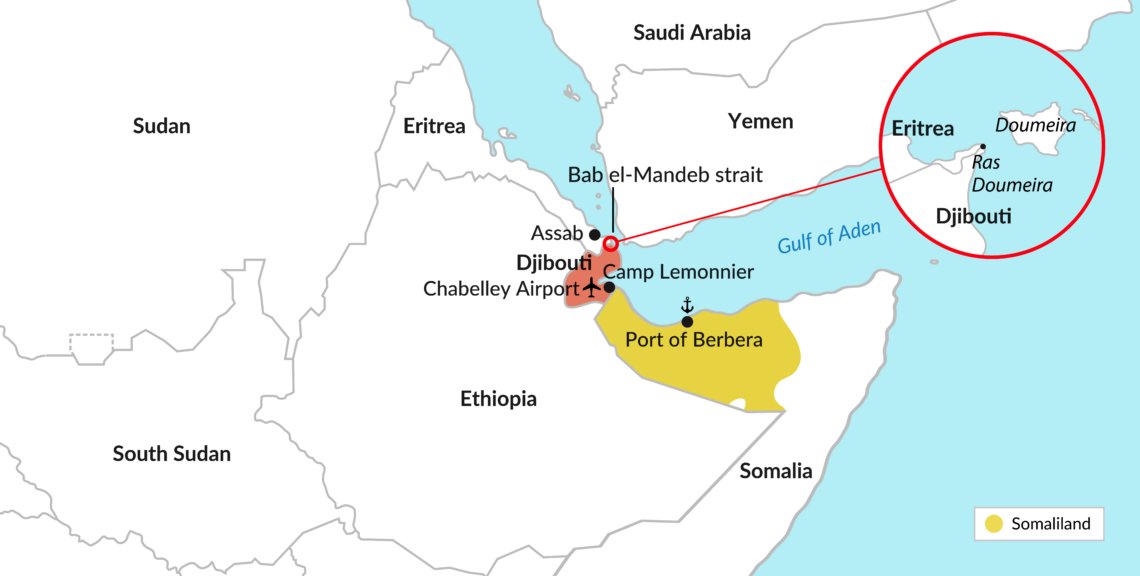
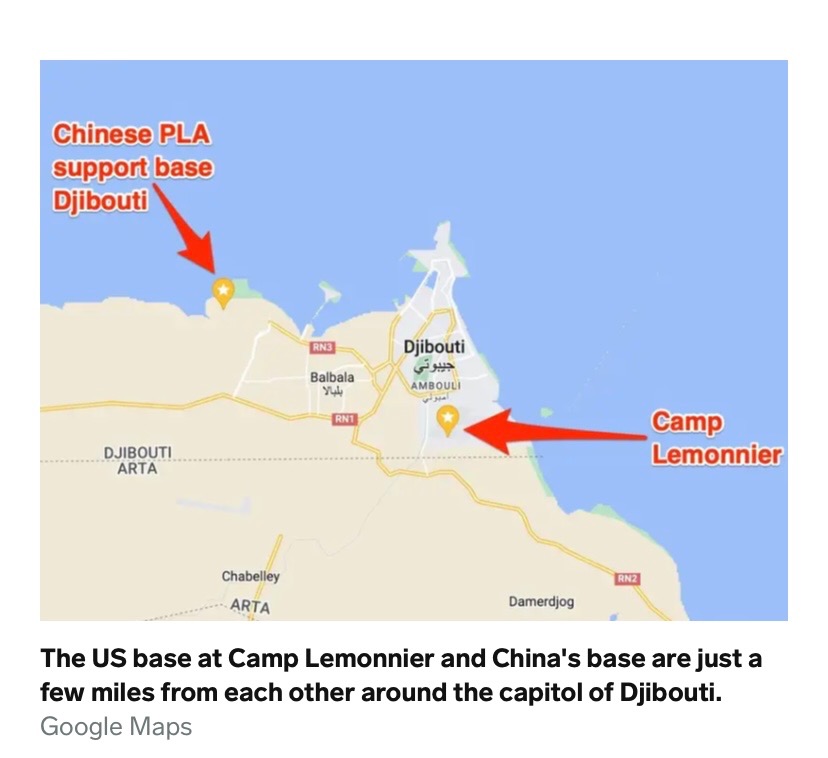

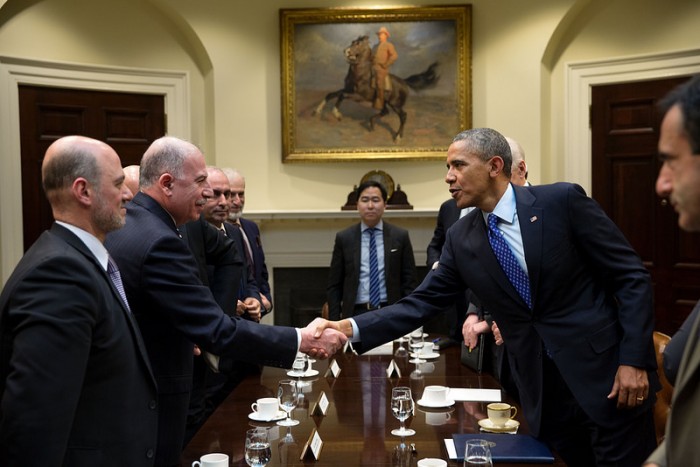



Post a Comment